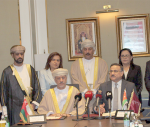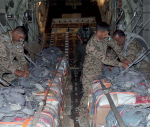You are here
Age of slowbalisation
Aug 29,2019 - Last updated at Aug 29,2019
A few months ago, “The Economist” made its main article and front-page cover about the new phenomena called “Slowbalisation”, the opposite of globalisation, in other words, it defines as the slowdown in global trade in favour of commerce between countries within the same region.
Many huge companies begin to lower their exposure to regions that carry high geopolitical risk or face unstable rules and bent tax laws in favour of others. For example, the Chinese investment into Europe and America fell by 73 per cent in 2018; also the global value of cross-border investment by multinational companies sank by 20 per cent in the same year. For Asia and Europe as well, the biggest part of their trade is already intra-regional commerce.
Experts argue that slowbalisation occurred due to many factors such as the weaponisation of the dollar-payment system, the rise of nationalism and the new EU regulations against the Silicon Valley giant tech companies in order to stop them from becoming involved in politics and violating their citizens’ privacy.
What matters to Jordan in regard of this new economical era? And how we can benefit from it to help Jordan’s stumbling economy? Knowing that most of Jordanians consider the economic crisis is the main and most urgent issue that needs to be addressed by the government.
Slowbalisation throws the world back to the era of regional economic reality that shares the same culture, language, strategic goals and land borders; furthermore, customs and tariffs give an advantage to the local products. This is exactly what we need in the Middle East, a region with high potential reconstruction projects in Syria and Iraq, and a giant project in Saudi Arabia as NEOM city’s investments will take a part in Aqaba.
But to take advantage of the intra-regional commerce, we need short- and long-term feasible economic plans, a political will to overcome any past complications and the traditional alliance heritage that disturbs our relations with Baghdad and Damascus. Refocusing our foreign policy around the Jordanian interests is a must, as the economic restructuring is vital to provide the regional market with the needed products, services and logistical support.
Jordan needs a serious rehabilitation for the roads and transportation network, encouraging the agricultural sector, and reducing the production cost for the food, clothing and pharmaceutical industries, to stand up to the global and regional competition and to ensure their ability to penetrate the regional market to maintain competitiveness for consumer benefit.
The world was once considered to be a small village, but now it is going back to groups of isolated islands, at least commercially. Maybe this is our chance to take a second look at our commercial and economic model in regional standards and not global anymore.












